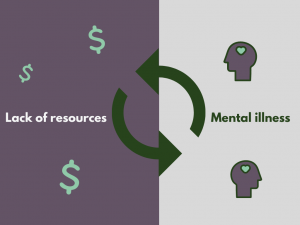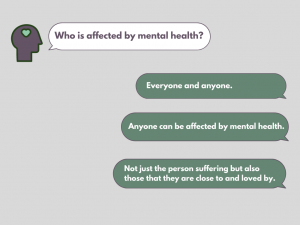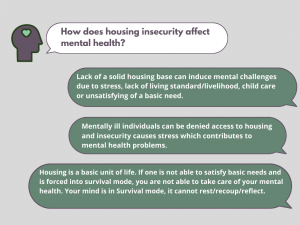A Spotlight on Homelessness & Mental Health
According to Treatment Advocacy Center, one-third of homeless individuals have some form of severe mental illness, while mental health was the third largest issue directly linked to causes of homelessness in 22 major U.S. cities.

Mental illness in the homeless community is a cycle. A lack of financial and physical resources means addressing mental health for people struggling with homelessness has been inconsistent and, subsequently, ineffective for long-term support.
This lack of funds to combat issues of homelessness and mental health support means that those suffering from mental illness while experiencing poverty are left to face the battle without the tools to effectively move forward.
More funding and better policies could be used to enhance supported housing, which includes not only shelter but mental health treatment, education access, and employment opportunities. To learn more about how you can advocate for funding in your area, check out the National Coalition for the Homeless.
Your thoughts on how homelessness affects mental health
We asked a select group of people of varying ages and backgrounds some basic questions on their understanding of mental health and homelessness. Here were some of their responses.


